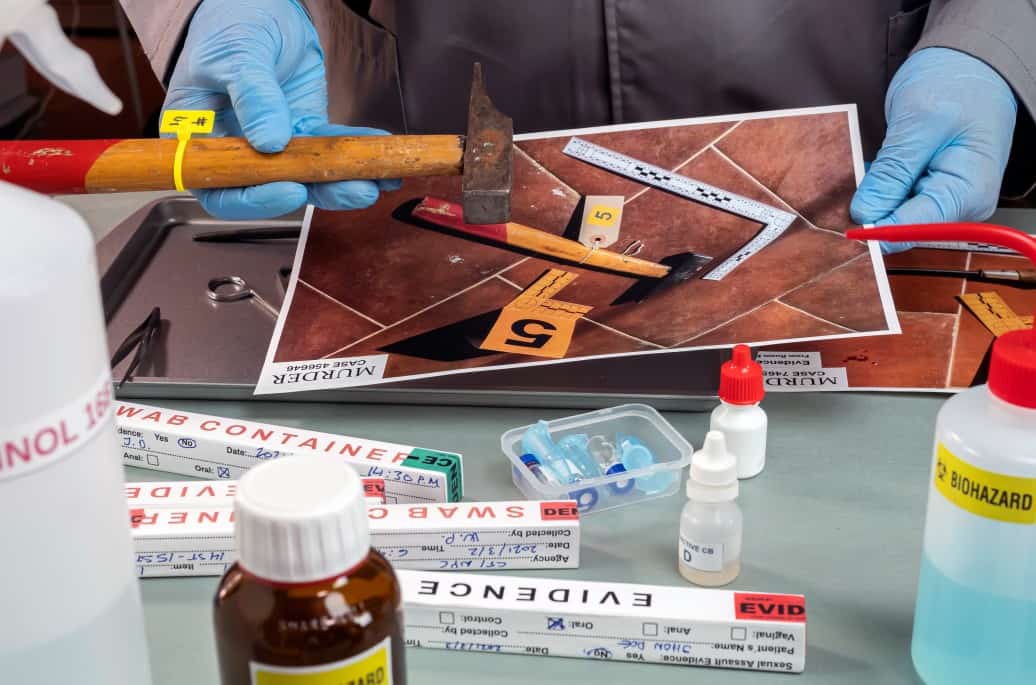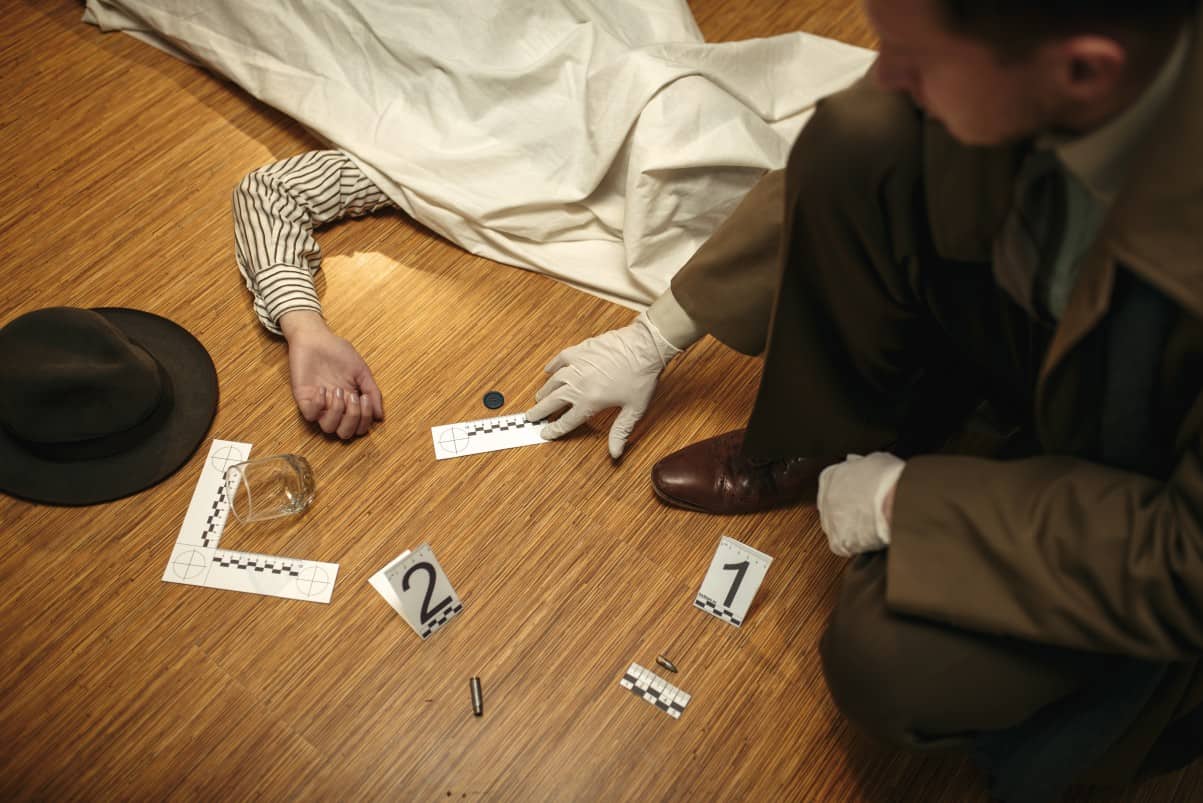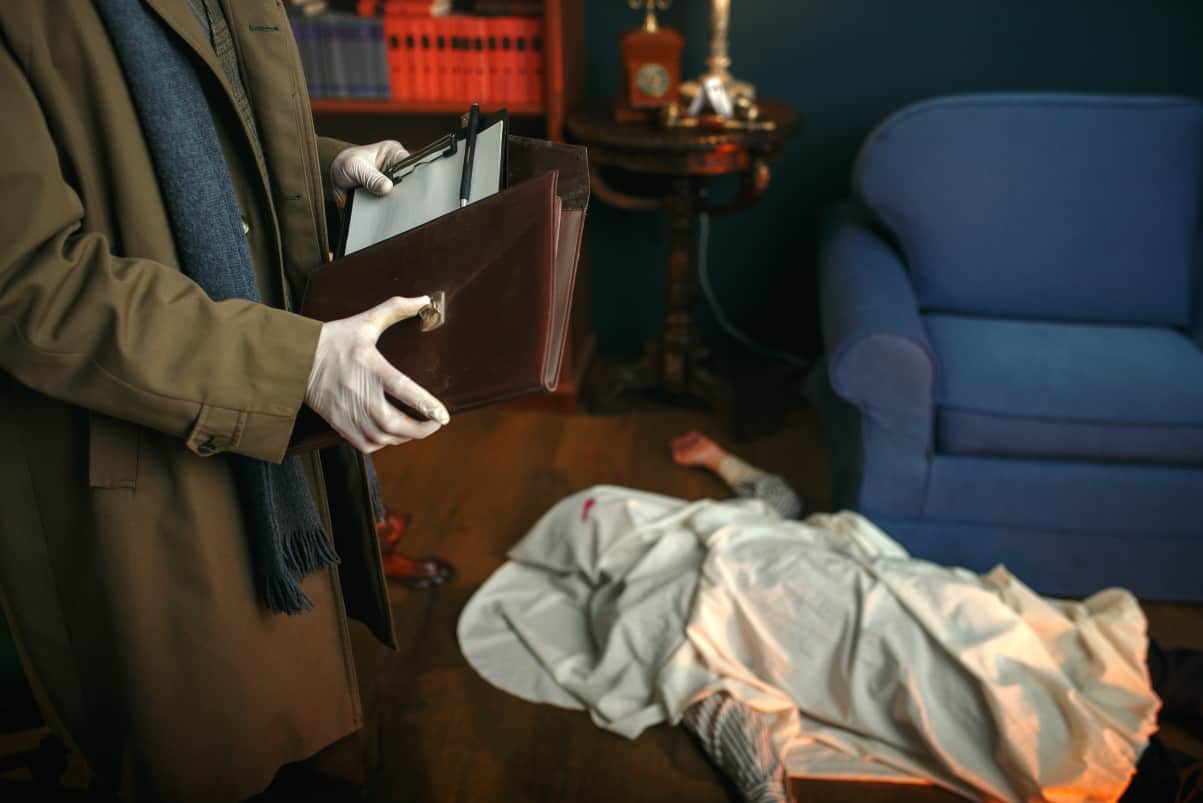
Forensic crime scene reconstruction is the process of determining the sequence of events about what occurred during and after a crime. The basis of the crime scene reconstruction is the location and position of the physical evidence, the analysis of the crime scene pattern, and the laboratory examination of the physical evidence.
Deduction: The reasoning process that starts with a general impression and then explores a logical sequence of consequence.
Induction: The reasoning process in which skills, experience, and observation are applied to a case, resulting in a conclusion or hypothesis.
The Crime Scene Reconstructionist seeks to determine:
What happened?
How did it happen?
Where did it happen?
Why did it happen?
When did it happen?
Who was involved?

Reconstruction is partly based on the scientific experimentation and partly on past experiences. Logic, careful observation, and considerable experience, both in crime scene investigation and forensic examination of physical evidence, are necessary for proper interpretation, analysis and crime scene reconstruction.
Proper crime scene reconstruction is conducted in three phases:
Stages in Reconstruction:
Types of Reconstruction: It depends on the nature of the crime, the types of events that have taken place, below is a general classification of types of reconstruction in detail.

1. Accident reconstruction
Transportation accident reconstruction: trains, airplanes, boat accidents, etc.
Industrial or construction accident reconstruction: ‘on the job’ or employee accidents, building collapses, machinery, etc.
Traffic accident reconstruction: automobiles, trucks, motorcycles, etc.
2. Specific crime reconstruction:
Arson scene reconstruction
White-collar crime reconstruction
Homicide reconstruction
Rape case reconstruction
Sequence determination
Directional determination
Position determination
Relational determination
Conditional determination
Identity determination
Total case reconstruction
Partial case reconstruction
Limited event reconstruction
Specific pattern reconstruction
Pattern evidence
Shooting investigation evidence
Serological evidence
In crime scene reconstruction, a hypothesis is formed after crime scene investigation stating that how that particular crime might have taken place. This hypothesis is then tested against the physical evidences collected from the crime scene and developed or examined through laboratory experiments as well as utilizing the statements of witnesses, crime scene sketch and photography along with the use of inductive and deductive reasoning. It requires skill as well as specialized tools and equipment at times to reconstruct a crime scene properly. Crime scene reconstruction is crucial in building the profile of an offender and to solve a crime.
At Connectel‘s (Forensic Division), Crime Scene Reconstruction is done with highest credibility and impartiality. Being the first and Only Forensic Science laboratory in private sector accredited by Government of India for ISO / IEC 17025 :2017 Standards acceptable worldwide by all Government and Regulatory bodies we only deliver quality forensic testing. By virtue of this accreditation, we are at par with any other similarly accredited forensic science laboratory in government sector in 107 member countries of ISO and India for report generation capability.
We maintain proper chain of custody at the laboratory from the point of receiving/collection of evidence till the disposal of forensic examination report. The observation and results of the forensic examination of evidence are kept confidential.
Reports generated by our forensic laboratory are admissible in the Indian Court of Law in the same category followed by the Government FSL’s. Further, we provide 65B certificate for admissibility of electronic evidence under Indian Evidence Act, 1872.
Our forensic experts are skilled and can testify in Indian courts to provide Expert Opinion under Section 45 of Indian Evidence Act, 1872.